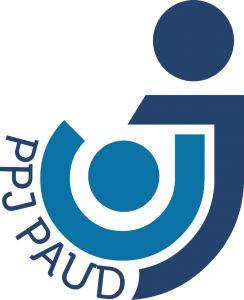Efektivitas Pemberian Reward Melalui Metode Token Ekonomi Untuk Meningkatkan Kedisiplinan Anak Usia Dini 4-6
DOI:
https://doi.org/10.30736/jce.v7i1.1698Keywords:
Reward, Token ekonomi, Disiplin, Anak Usia Dini,Abstract
Penelitian ini berjudul Efektivitas pemberian reward melalui metode token economy untuk meningkatkan kedisiplinan anak usia dini 4-6 tahun. Tujuan penelitian ini untuk mengetahui efektivitas pemberian reward melalui metode token economy untuk meningkatkan disiplin anak usia dini. Penelitian ini menggunakan pendekatan kuantitatif, dengan menggunakan desain eksperimen one group pre-test post-test. Subyek penelitian ini adalah siswa kelas A dan B di RA Al-Ma’ruf Mojoranu Dukuhagung Tikung Lamongan yang berjumlah 14 orang. Teknik analisis data yang digunakan dalam penelitian ini adalah Paired sample test. Penelitian ini dilakukan selama 23 hari yaitu 7 hari pre-test, 13 hari treatment token economy, dan 7 hari post-test. Hasil penelitian menunjukkan bahwa terdapat perbedaan antara pre-test dan post-test. skor post-test lebih tinggi dari skor pre-test. Hal ini juga membuktikan bahwa pengujian hipotesis melalui uji Paired sample dengan SPSS 26 menunjukkan Sig 0,00 yaitu kurang dari 0,05. Artinya H0 ditolak dan Ha diterima. Sehingga dapat disimpulkan bahwa pemberian reward melalui metode token economy efektif untuk meningkatkan kedisiplinan anak usia dini 4-6 tahun di RA Al-Ma'ruf Mojoranu Dukuhagung Tikung LamonganReferences
Anwar, D. (2001). Kamus Bahasa Indonesia. Karya Abditama.
Fahyuni, E.F., I. (2016). Psikologi Belajar & Mengajar (kunci sukses guru dalam interaksi edukatif). Nizamia Learning Center.
Hurlock, E. (2007). Perkembangan Anak (A. Dharma, M. Zarkasih, & M. Tjandrasa (eds.); 6th ed.). Erlangga.
Meila, A. (2015). Hubungan Reward Dengan Disiplin Anak TK Kelompok B di Sekolah Se-Gugus II Kecamatan Sanden. Universitas Negeri Yogyakarta.
Mufidah, U. (2012). Efektivitas Pemberian Reward Melalui Metode Token Ekonomi Untuk Meningkatkan Kedisiplinan Anak Usia Dini. Belia, 1(1), 1–5. http://journal.unnes.ac.id/sju/index.php/belia
Mujahidin, E., Mufarohah, L., & Alim, A. (2019). Penggunaan Metode Proyek Untuk Meningkatkan Kedisiplinan Pada Anak Usia Dini. Edukasi Islami: Jurnal Pendidikan Islam, 8(01), 171. https://doi.org/10.30868/ei.v8i01.395
Rohmaniah, N., Tegeh, I.M., Magta, M. (2016). Penerapan Teknik Modifikasi Perilaku Token Ekonomi Untuk Meningkatan Kedisiplinan Anak Usia Dini Di Tk Aisyiyah Bustanul Athfal Singaraja Tahun Pelajaran 2015/2016. Jurnal Pendidikan Anak Usia Dini Undiksha, 4(2). https://ejournal.undiksha.ac.id/index.php/JJPAUD/article/view/7976
Sagala, S. (2017). Konsep dan Makna Pembelajaran. Penerbit Alfabeta.
Suharsimi, A. (1993). Manajemen Pengajaran Secara Manusiawi. Rineka Cipta.
Wahab, R. (2018). Psikologi Belajar. Rajawali Pers.
Wantah, M. J. (2005). Pengembangan Disiplin dan Pembentukan Moral Pada Anak Usia Dini.
Downloads
Published
How to Cite
Issue
Section
License
Please find the rights and licenses in JCE (Journal of Childhood Education). By submitting the article/manuscript of the article, the author(s) agree with this policy. No specific document sign-off is required.
1. License
Use of articles will be governed by the Creative Commons Attribution - ShareAlike license as currently displayed on Creative Commons Attribution-ShareAlike 4.0 International License.
2. Author(s)' Warranties
The author warrants that the article is original, written by stated author(s), has not been published before, contains no unlawful statements, does not infringe the rights of others, is subject to copyright that is vested exclusively in the author and free of any third party rights, and that any necessary written permissions to quote from other sources have been obtained by the author(s).
3. User Rights
JCE (Journal of Childhood Education)'s spirit is to disseminate articles published are as free as possible but there is a little payment for publication. Under the Creative Commons license, JCE (Journal of Childhood Education) permits users to copy, distribute, display, and perform the work for commercial purposes. Users will also need to attribute authors and JCE (Journal of Childhood Education) on distributing works in the journal and other media of publications.
4. Co-Authorship
If the article was jointly prepared by more than one author, any authors submitting the manuscript warrants that he/she has been authorized by all co-authors to be agreed on this copyright and license notice (agreement) on their behalf, and agrees to inform his/her co-authors of the terms of this policy. JCE (Journal of Childhood Education) will not be held liable for anything that may arise due to the author(s) internal dispute. JCE (Journal of Childhood Education) will only communicate with the corresponding author.
5. Miscellaneous
JCE (Journal of Childhood Education) will publish the article (or have it published) in the journal if the article’s editorial process is successfully completed. JCE (Journal of Childhood Education)'s editors may modify the article to a style of punctuation, spelling, capitalization, referencing and usage that deems appropriate. The author acknowledges that the article may be published so that it will be publicly accessible and such access will be free of charge for the readers as mentioned in point 3.
JCE (Journal of Childhood Education) by Universitas Islam Lamongan is licensed under a Creative Commons Attribution-ShareAlike 4.0 International License.Based on a work at http://journalfai.unisla.ac.id/index.php/jce.












